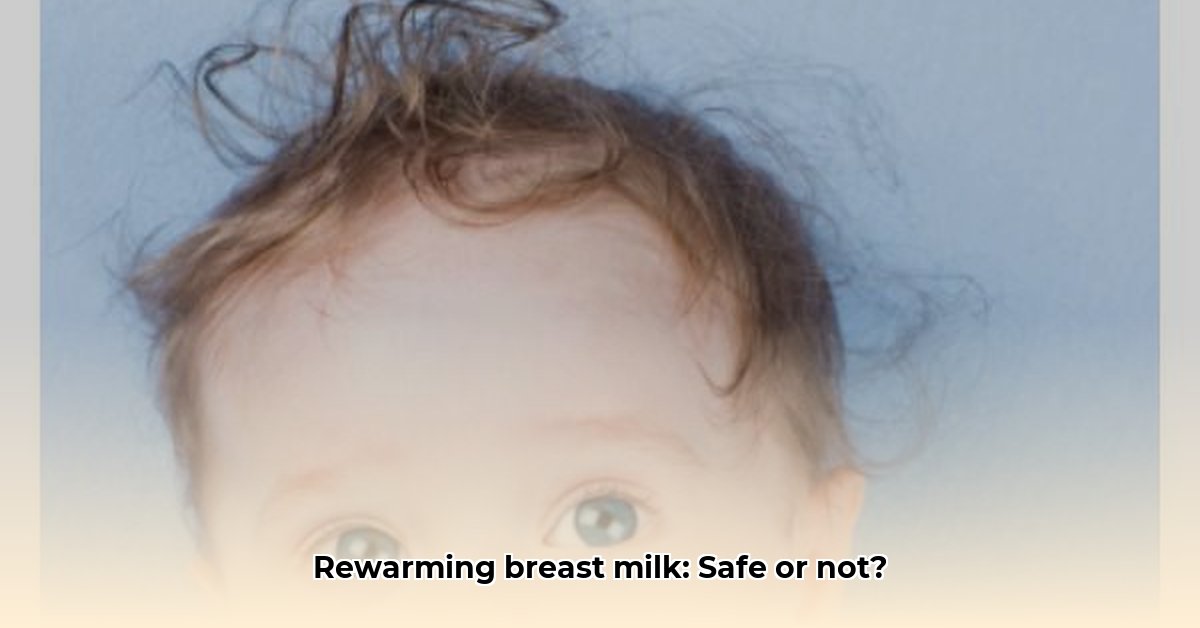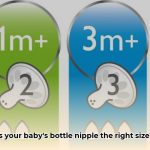Warming Up Liquid Gold: A Gentle Approach
Warming breast milk safely is essential for preserving its nutrients and protecting your baby’s health. This guide provides step-by-step instructions, helpful tips, and answers to frequently asked questions to give you confidence in handling this precious liquid.
Step-by-Step Warming Instructions
Thawing Frozen Breast Milk
- Refrigerator Thawing (Recommended): Place the frozen milk in the refrigerator overnight. This slow, gradual thaw is best for preserving nutrients.
- Cool Water Thawing (Quicker Option): Submerge the sealed container in cool water, gradually increasing the water temperature as the milk thaws. Avoid thawing at room temperature to minimize bacterial growth.
Warming Thawed or Refrigerated Milk
- Warm Water Bath: Place the sealed bottle or bag in a bowl of warm (not hot) water. Gently swirl the milk, checking the temperature frequently on your inner wrist. Aim for lukewarm, about body temperature.
- Bottle Warmer: Follow the manufacturer’s instructions. Bottle warmers offer a convenient and controlled warming method.
- Running Warm Water: Hold the sealed bottle or bag under warm (not hot) running tap water, swirling frequently. Test the temperature often on your wrist.
Do’s and Don’ts: Quick Reference
| Do | Don’t |
|---|---|
| Thaw breast milk in the refrigerator or under cool running water | Thaw at room temperature or in hot water |
| Warm milk using a warm water bath, bottle warmer, or running warm water | Use a microwave or stovetop to warm milk |
| Test the temperature on your wrist | Reheat or refreeze previously warmed milk |
| Swirl gently to mix | Shake vigorously |
| Discard leftover milk after feeding | Save warmed milk for later use |
FAQs: Addressing Common Concerns
Q: Why can’t I microwave breast milk?
A: Microwaving can create hot spots that could scald your baby and may also degrade some nutrients.
Q: Can I reheat breast milk more than once?
A: It’s best to avoid reheating breast milk multiple times, as it can increase the risk of bacterial growth. Discard any leftover milk after a feeding.
Q: What if my baby doesn’t finish a bottle of warmed milk?
A: Discard any leftover warmed milk after two hours at room temperature to prevent bacterial growth. Unheated, expressed breastmilk can be stored according to the guidelines below.
Q: My thawed breast milk smells soapy. Is it still safe?
A: A soapy smell can occur due to lipase, a natural enzyme in breast milk. It’s usually harmless unless the milk also tastes sour or rancid. If your baby refuses it, consider shortening storage times to potentially minimize this effect, or speak to a lactation consultant.
Q: Where can I find more information about safe breast milk handling?
A: Consult reputable sources like the CDC or La Leche League International.
Breast Milk Storage Guidelines
| Storage Location | Maximum Recommended Time (for healthy, full-term infants) |
|---|---|
| Room Temperature | Up to 4 hours (in cool conditions, 6 hours is probably safe) |
| Insulated Cooler | Up to 24 hours |
| Refrigerator | Up to 5 days |
| Freezer (inside refrigerator) | Up to 3-6 months (depending on freezer model) |
| Deep Freezer | Up to 12 months |
Important Considerations
- Individual Needs: These guidelines are for healthy, full-term infants. Premature or sick babies may have different requirements. Consult your pediatrician or a lactation consultant for personalized advice.
- Evolving Research: Recommendations for breast milk storage and handling may change as research progresses. Stay updated by checking reputable sources like the CDC and La Leche League International.
- Trust Your Instincts: If something doesn’t seem right with your breast milk (unusual color, odor, or texture), err on the side of caution and discard it.
- Seek Professional Guidance: Your pediatrician or a lactation consultant is your best resource for any questions or concerns about breastfeeding and breast milk handling.
Disclaimer: This information is for educational purposes only and does not constitute medical advice. Always consult with a qualified healthcare professional for any health concerns or before making any decisions related to your baby’s health or treatment.
- Best Mindfulness Books for Anxiety, Sleep, and Daily Peace - January 29, 2026
- Books On Mindfulness For A Happier, More Present Life - January 28, 2026
- Essential Meditation Books for Beginners and Experienced Practitioners - January 27, 2026
















